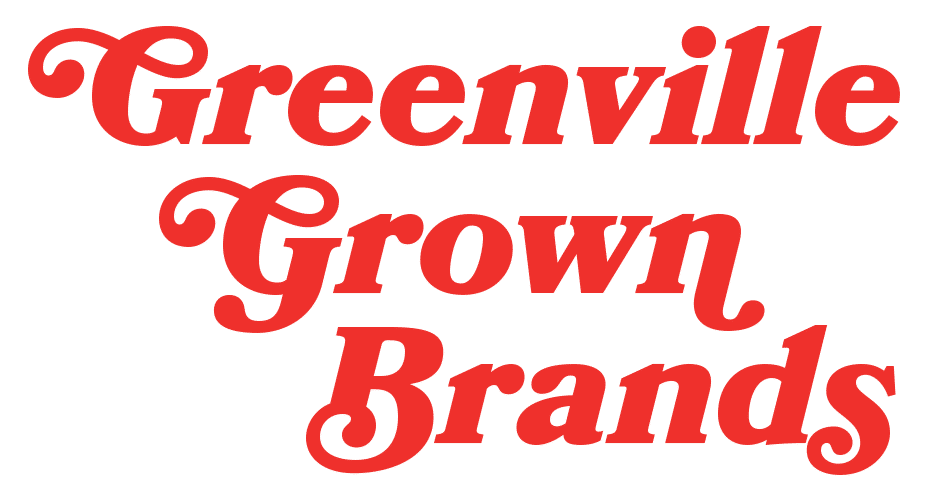“Marketing travel is probably the easiest category in the world. Marketing a travel brand is probably the hardest.” So says Mark Weinstein, CMO at Hilton, so he should know. But this reality also begs the question: If marketing a travel brand is literally one of the hardest things to do, who does it, like super successfully? And how? The research (and data) led us to a few standout brands and their tactics, helping us create this tidy list of the “Who’s Who in Hospitality,” who are successfully using data to build their brands and drive growth through strong customer connections.
“Always start with a question, not the data. It’s about understanding what the data means for Marriott’s customer experience and what question we’re trying to answer around it, and then bridging the two.”
– Susan Bloomberg, Vice President of Personalization and Product Performance,
Marriott International
Image: Marriott
1. Marriott International: A Personalization Powerhouse
As the world’s largest hotel company, offering more than 1.1 million rooms across 30 brands in 110+ countries, Marriott definitely knows a few secrets when it comes to hospitality marketing growth. According to the brand, one of those secrets would be “Constantly changing to meet the needs of their customers.” And how they track and adapt to those needs comes down to data.
For Marriott to continue delivering top-notch hotel experiences, it needed to better understand how customers were engaging. This meant changing the way data was tested, measured, and interpreted and bringing in the right experts to integrate the whole process. Experts like Susan Bloomberg, a math and data nerd to the core. Today, Susan brings her obsession with numbers to Marriott as the Vice President of Personalization and Product Performance.
“Always start with a question, not the data. It’s about understanding what the data means for Marriott’s customer experience and what question we’re trying to answer around it, and then bridging the two,” she claims. “We’ve changed the way that teams think about data. That means thinking about how it represents the user experience, not just data for the sake of data.” From analyzing the brand’s website navigation to adjusting search filter experiences, Bloomberg has since built up an entire experimentation program to support the company’s data needs and bolster one of its most important tactics for recurring bookings: Marriott Bonvoy, its loyalty program.
- Challenge: Cater to the diverse needs and preferences of a massive global guest base.
- Solution: Marriott Bonvoy, the brand’s loyalty program, leverages guest data on past stays, travel preferences, and spending habits.
- Results: Personalized emails with targeted offers, room recommendations, and exclusive deals based on individual guest profiles. This approach has led to increased guest engagement, loyalty program participation, and repeat bookings.
But Bloomberg and her team are also obsessed with what’s next: unlocking real-time, personalized experiences from the time customers book their stay to when they settle into their journey — whether it’s finding the perfect location, unpacking their suitcases, or heading out into the city to beat jet lag.
“We’re focused on what we’re building for our customers next. Trying to anticipate those needs, not just for today’s success, but for tomorrow and for the future.”
And based on today’s successes, tomorrow’s look just as promising. Bloomberg’s experimentation program has measured over $250 million in incremental gross revenue for Marriott, and they’re on track for $1 billion across incremental revenue and loss prevention, all from testing experiences that either worked or alerted teams to further improvements.
What a difference data can make.
Image: Hilton
2. Hilton Honors: Rewarding Loyalty
Across the leading hospitality brands, there’s a common thread that drives business: rewards programs. Every report we’ve ever read and every hospitality tech specialist like the SHR Group we’ve ever referenced are aligned.
“Hotel technology is leveling the playing field for hoteliers and their ability to compete for leads, but that return on investment won’t remain the same forever. The race to bring guests into loyalty programs and win greater influence over how and where they shop for travel, possibly for the rest of their lives, is becoming much more intense. Personalization and ownership of the guest profile are top of the agenda for the [online travel agencies] and hotel operators alike.” – Rod Jimenez, CEO of SHR Group
In a brief case study by Moveable Ink for Hilton, Hilton used a global data-driven campaign (data sourced from its rewards program Hilton Honors) to gather learnings and inform future campaign strategies.
- Challenge: Hilton wanted to surprise, delight, and thank their loyal Hilton Honors rewards program members by delivering a hyper-personalized email with real-time content that gave them more insight into their travel experiences. The problem? This was uncharted territory for Hilton, and they needed to figure out how to access their data and turn it into a compelling story.
- Solution: Leveraging booking information and loyalty program activity for targeted email marketing campaigns. Most of Hilton’s messages tend to be quick and straightforward – but not this one. Movable Ink provided Hilton with the advanced capability to pull in selected data fields, creating an easy way to personalize each email for each customer in real-time. Hilton ensured there was enough room for the data, included data thresholds, and used fallback default messaging so that the story flowed even if the thresholds weren’t met.
- Results: Personalized emails with relevant hotel recommendations, exclusive deals based on guest preferences, and targeted online advertising that reaches travelers actively searching for hotels. This data-driven approach has increased brand awareness, website traffic, and ultimately, bookings. Using real-time member data more meaningfully, Hilton created a first-of-its-kind (for the brand) email experience. The campaign saw huge lifts in open rates, click-through rates, and revenue, providing an $82 per-click conversion rate. Members loved the personalized, dynamic messaging, fueling Hilton’s push for more personalized messaging company-wide. As a next step, the brand is looking to expand the program to better reach their non-English speaking members.
So what’s next for the loyalty program? Wish we had a crystal ball … We’re interested to see how it might expand on its current features – flexible points redemption, elite status perks, and an extensive global footprint – to grow its relevance and appeal to travelers overwhelmed with high-appeal alternatives (looking at you, Marriott Bonvoy).
Image: Dribbble
3. Airbnb: Masters of Dynamic Pricing
Airbnb knows that understanding local demand is a key part of finding a competitive price, but hosts don’t always have that kind of visibility on their own.
- Challenge: Optimize rental pricing to maximize revenue while remaining competitive.
- Solution: Using a massive amount of user data, including location, seasonality, demand trends, and booking history.
- Results: Airbnb implements dynamic pricing that fluctuates based on various factors. This ensures hosts receive competitive rates and guests find attractive options within their budget. And while major hotels employ the same dynamic pricing strategy, this data-driven approach has contributed significantly to Airbnb’s growth and success.
While Airbnb hosts absolutely control pricing their listings, Airbnb decided to provide built-in pricing recommendations and tools to help hosts leverage dynamic pricing strategies that are already being put to use by competitor hotels and other hosts too. The free tool, called “Smart Pricing,” analyzes various factors and suggests optimal pricing for different days. Hosts can choose to accept these suggestions, adjust them, or set a fixed price entirely. And while not required, some hosts choose to use third-party software for more sophisticated dynamic pricing strategies.
Have you ever noticed dynamic pricing while searching for an Airbnb? (I have, and I’ve booked accordingly.)
Image: citizenM
4. citizenM: Streamlined Mobile Booking
If you haven’t heard of citizenM hotels before, we’re happy to make the introduction. Described as “a new breed of hotel,” citizenM is crystal clear about its intentions: “We disrupted the traditional hotel model to give modern travelers what they want – affordable luxury.”
Focused on the “mobile citizen” – the person who travels often and depends on mobile technology – the hotel brand recognized their grade of global travelers typically have a few essential conveniences and luxuries they are willing to pay for, while other traditional amenities are not essential for them. And the best way to connect with a “mobile citizen” and acquire very specific customer data about their preferences and experience is also … through mobile.
- Challenge: Offer a seamless and efficient booking experience for tech-savvy guests.
- Solution: Developed a mobile app that uses guest data for pre-filled check-in forms and personalized room temperature settings.
- Results: The app allows guests to book directly, manage reservations, and access keyless room entry. This data-driven approach has simplified the booking process and increased guest satisfaction.
While these are just a few examples of best-in-class tactics, and many other hotels are using data-driven marketing strategies to achieve success, our key takeaway is simple: leveraging guest data effectively enables hospitality brands to personalize the search and booking experience, build stronger relationships with guests, and drive more room bookings. But the process never looks or stays the same for long. Just as Rod Jimenez mentioned earlier in this article, “The race to bring guests into loyalty programs and win greater influence over how and where they shop for travel, possibly for the rest of their lives, is becoming much more intense.” And we’re here to watch and learn from that “race” as much as possible. Stay tuned!
If you have any questions about how to elevate your own hospitality marketing tactics, we’re all ears. We’d love to get the chance to work with you and help your brand reach its full potential. Get in touch today.








